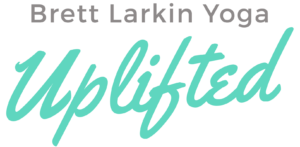
Just like studying at university where lectures follow a certain curriculum, a Yoga Alliance (YA) certified Yoga Teacher Training (YTT) offered by a Yoga Alliance Registered Yoga School (RYS) is required to cover specific topics. There is freedom within these requirements for schools to specialize or provide training beyond what is required (for example, I’ve included business training in my 200 hour training and in top-up trainings, but more on that later).
So, what topics does a YA certification cover, you ask? And, perhaps more importantly, what topics aren’t included? Before you sign up to a Yoga Teacher Training, read on for answers!
And check out Yoga Alliance FAQs if you still have questions 😉.
Core Topics Covered in All Yoga Alliance Certified Trainings
The Yoga Alliance certification standards can seem like a jumble of numbers for yogis and teachers-to-be who haven’t encountered them before.
After all, hours? Umm… what? I can’t think of any other education, holistic or academic, that ranks training levels by hours 🤔
There are six topic areas behind the hour structure, and each certification level has to fulfill a set number of hours educating you about them. If you’re wondering why the 300 hour trainings require fewer study hours than the 200 hour training in many topic areas, remember that a 500 hour training is seen as the equivalent of a 200 and 300 hour training, and you must have a 200-hour training in order to enroll in a 300 hour training.
The hours required for basic topics (techniques, training and practice, teaching methodology, anatomy and physiology, and philosophy, lifestyle and ethics) at the 300-hour level are designed to complement and refresh what you’ve already learned at the 200-hour level. You’ll notice that when combined, the 200-hour and 300-hour requirements in these topic areas add up to the 500-hour requirement.
The 300-hour training includes nearly as many elective hours as the 500 hour training, so these trainings are often highly specialized in comparison to 200-hour YA certified trainings.
What Topics Does a YA Certification Cover?
1. Techniques, Training and Practice
- 200-hour YA-certified trainings must include 100 hours of techniques, training and practice
- 300-hour YA-certified trainings must include 50 hours of techniques, training and practice
- 500-hour YA-certified trainings must include 150 hours of techniques, training and practice
No matter what certification level you do, this topic will need to be delivered not only through teaching about these topics, but also by practicing asanas, pranayamas, mantra, meditation, and other traditional yoga techniques.
2. Teaching Methodology
- 200-hour YA-certified trainings must include 25 hours of teaching methodology
- 300-hour YA-certified trainings must include 5 hours of teaching methodology
- 500-hour YA-certified trainings must include 30 hours of teaching methodology
These hours are an opportunity to explore different teaching and learning styles, communication skills, principles of observing and assisting, and sometimes business aspects of yoga teaching.
3. Anatomy and Physiology
- 200- hour YA-certified trainings must include 20 hours of anatomy and physiology
- 300- hour YA-certified trainings must include 15 hours of anatomy and physiology
- 500- hour YA-certified trainings must include 35 hours of anatomy and physiology
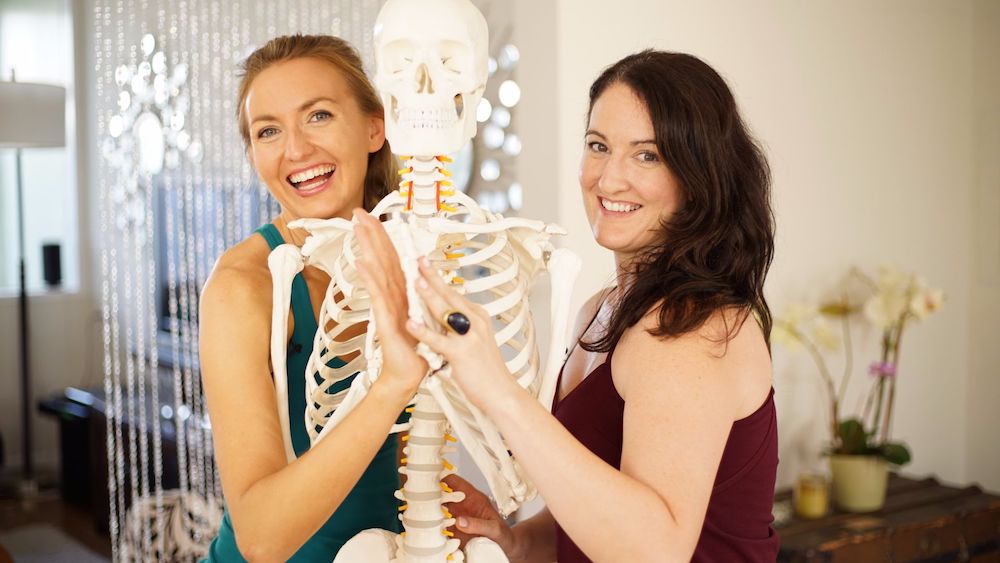
This area covers not only physical anatomy and physiology (e.g. body structure, systems, etc.), but also energetic anatomy and physiology (e.g. chakras, nadis, etc.). While time is spent on studying these topics, knowledge will also be applied to yoga practice (e.g. determining healthy movement patterns, working with injuries, etc.).
4. Yoga Philosophy, Lifestyle and Ethics for Yoga Teachers
- 200- hour YA-certified trainings must include 30 hours of yoga philosophy, lifestyle and ethics
- 300- hour YA-certified trainings also must include 30 hours of yoga philosophy, lifestyle and ethics
- 500- hour YA-certified trainings must include 60 hours of yoga philosophy, lifestyle and ethics
Depending on the certification level your training will elaborate on yoga philosophy and traditional texts (e.g. Bhagavad Gita or the Yoga Sutras by Patanjali). You might also discuss topics such as leading a yoga lifestyle and concepts such as dharma, karma, and seva (being of service to others).
5. Practicum
- 200-hour YA-certified trainings must include 10 hours of practicum
- 300-hour YA-certified trainings must include 30 hours of practicum
- 500-hour YA-certified trainings must include 40 hours of practicum
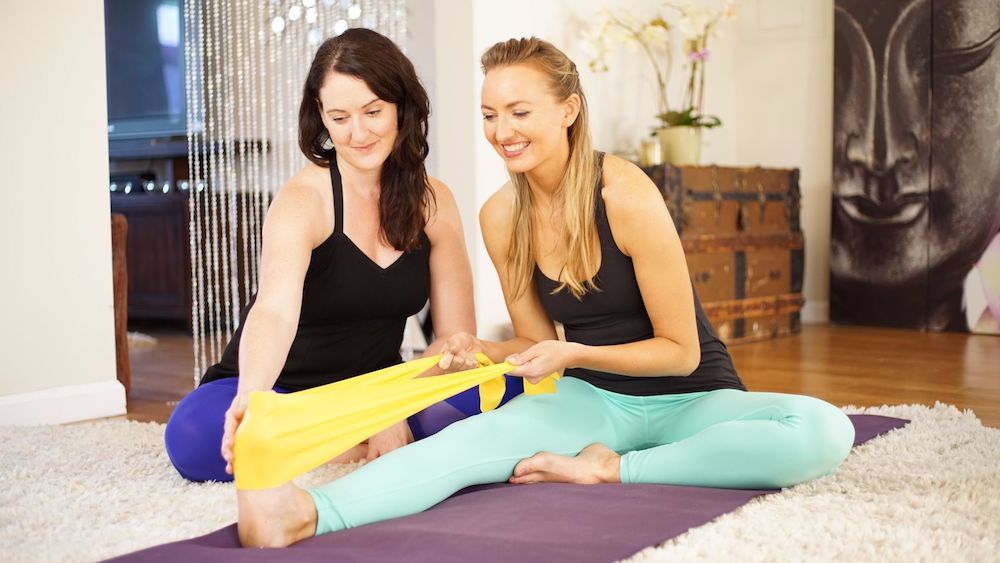
The practicum is your time to practice teaching yoga. Teachers in training or your training leader may give you feedback after observing your teaching. At the entry level, practicum often begins by teaching segments of a mentoring teacher’s class, for example leading a 10-minute sun salutation sequence.
6. Remaining and Elective Hours
- 200-hour YA-certified trainings must include 15 hours of remaining / elective hours
- 300-hour YA-certified trainings must include 170 hours of remaining / elective hours
- 500-hour YA-certified trainings must include 185 hours of remaining / elective hours
Any remaining hours must be distributed amongst the five main topics, or in additional areas, as electives. To learn more on what the different topic areas cover and how to prepare for your 200-hour training, check out my article on 200 Hour Yoga Teacher Training.
Fall in love with my 200-Hour teacher training or …
Experience 3 Training Videos from Inside My 200-Hour Online YTT

Required Structure for Yoga Alliance Certified Trainings
YA has distinguished the delivery of content into contact and non-contact hours.
For each certification level, there is a required number of hours for each of these types of teaching within each topic area.
Some of these hours can be delivered online, which allows for more flexibility.
Contact and Non-Contact Hours
Contact hours are defined as the training time spent in the physical presence of a faculty member. The content delivered during these hours must specifically be intended for the students of the certification program and cover aspects of the main topic areas.
Non-contact hours refer to any training time spent independently of yoga school faculty. These types of hours could involve reading assignments, attending webinars, or participating in yoga classes as practice. All of these hours need to be dedicated to the five main topic areas and fit into the flow of the overall curriculum.
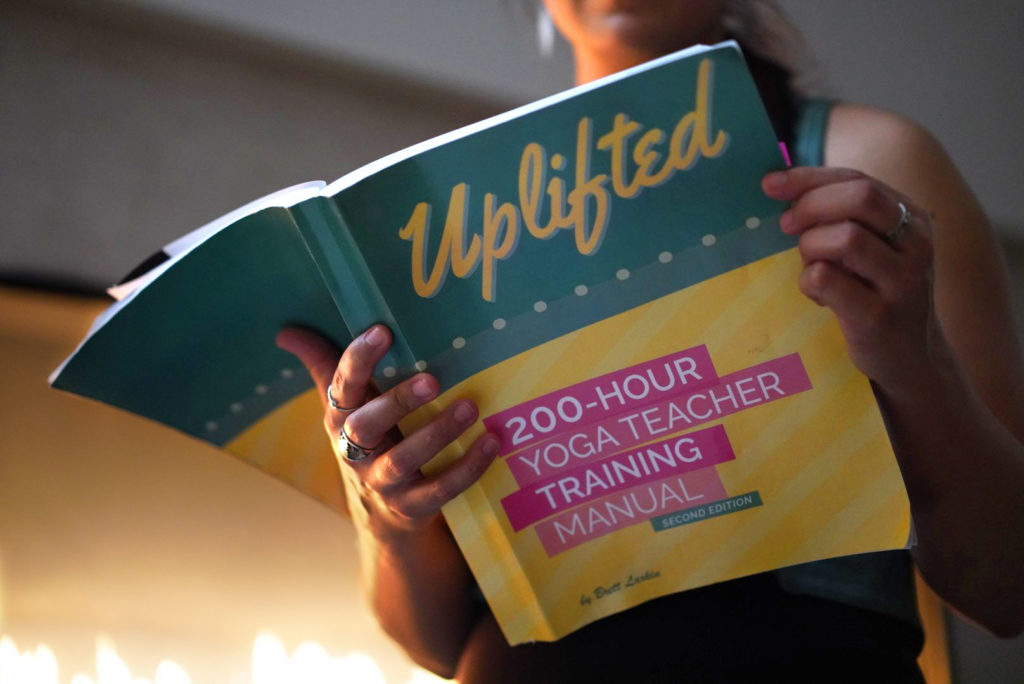
Due to the Coronavirus circumstances, YA has allowed some trainings to deliver contact hours online, that were previously required to be delivered in person.
Since the Yoga Alliance approves each yoga school individually, the online / in person rules are a bit blurry at the moment for schools that usually meet in person. I’ve written about YTT courses approved by YA to meet virtually, and definitely recommend you check it out!
The takeaway here is to make sure you check in with your chosen yoga school prior to signing up if their training is currently YA approved.
Elective Hours
As mentioned earlier, there are a certain number of flexible hours in each certification level which can be spent on topics chosen by the RYS. Depending on the lineage and set-up of the course, a RYS might use these hours to teach more about the yoga traditions of its lineage (e.g. ashtanga or vinyasa).
Take my quiz to find out which YTT is best for you:
What Topics Doesn’t a Yoga Alliance-Certified Training Cover?
If you’re serious about teaching full-time after completing your training, you must be aware of what YA-certified trainings won’t typically deliver. These are the biggies IMO:
- Time management and scheduling
- Business planning and strategy
- Scoring studio jobs through cold email
- Marketing and SEO
- Event planning
Would yoga teachers planning a career in this industry benefit from learning about these topics when starting their journey of self-employment?
Absolutely!!
Yet, YA is not in the business of business, and has no requirements for their participating yoga schools to educate in these areas.
My background in corporate tech gave me a boost in this area, but I still struggled in my early years as a yoga teacher to translate my passion for yoga into cashflow. Now that my ramen days are thankfully past, I’ve developed the Uplifted Yoga Business Academy to give new yoga teachers the start I wish I had!
Final Thoughts on Topics Covered in YA Certified Trainings
A YA training might cover a lot of content that you are already familiar with. But most likely, there will be a LOT of new stuff! It can be overwhelming!!
Deep breaths.
When choosing your training, the most important thing is to pick one hat suits your goals. If you simply want to deepen your personal practice, then choose a training that speaks to you without worrying about the YA credentials. Know the value of YA-registration, and be honest with yourself about the other skills you’ll need to make your teaching dreams come true ✨ You can do it!
Next Steps
- Check out my YouTube channel and find some yoga classes that you can try out for yourself!
- Explore my knowledge hub for How to Become a Yoga Teacher
- Attend a 200 YTT info session to see what else you’ll learn in my online teacher training.
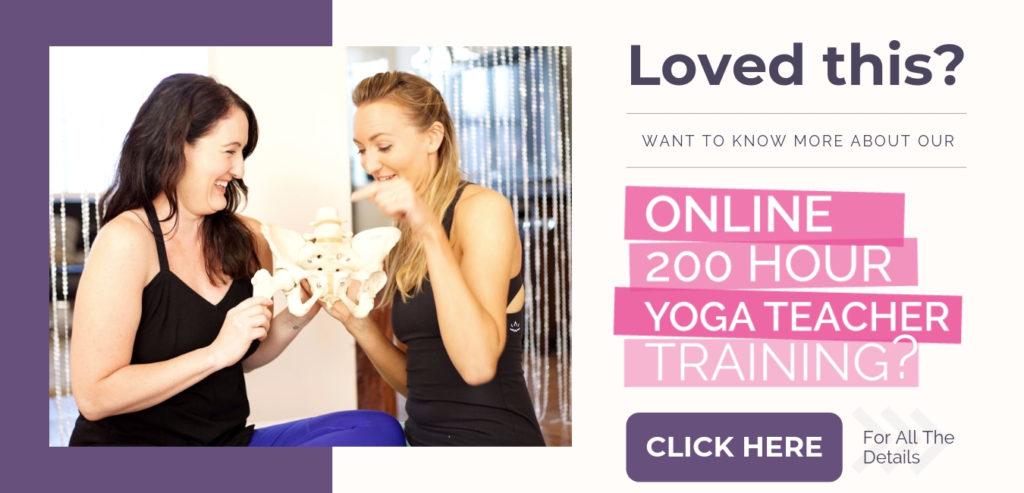
YOU MIGHT ALSO LIKE
- How Long Does Yoga Alliance Certification Last? 5 Steps to Maintain It
- What Topics Does a Yoga Alliance-Certified Training Cover?
- How Many Hours Do You Need to be Certified by the Yoga Alliance?
- Am I Qualified to Teach After Taking a 200 Hour YTT?
- How to Upgrade Your Yoga Alliance Certification Designation to 300 / 500 RYT
- How to Register Your YTT Certificate With Yoga Alliance (With Photos)
- How to Update Your Yoga Alliance Teacher Profile Step-by-Step
- Yoga Nidra Training Certification: Immersion, Online, Or In Studio
- How To Log Yoga Alliance Continuing Education Hours
- The Only 7 Yoga Alliance Membership Benefits (Some Are Free)
- 115 Shocking Yoga Statistics That Nobody Talks About
- Are Online YTT Courses Now Approved By Yoga Alliance? It’s Complicated.
- Can I Teach Without a Yoga Alliance Certification? (Yup)
- What is Yoga Alliance and Do I Need an RYT Certificate to Teach Yoga?
